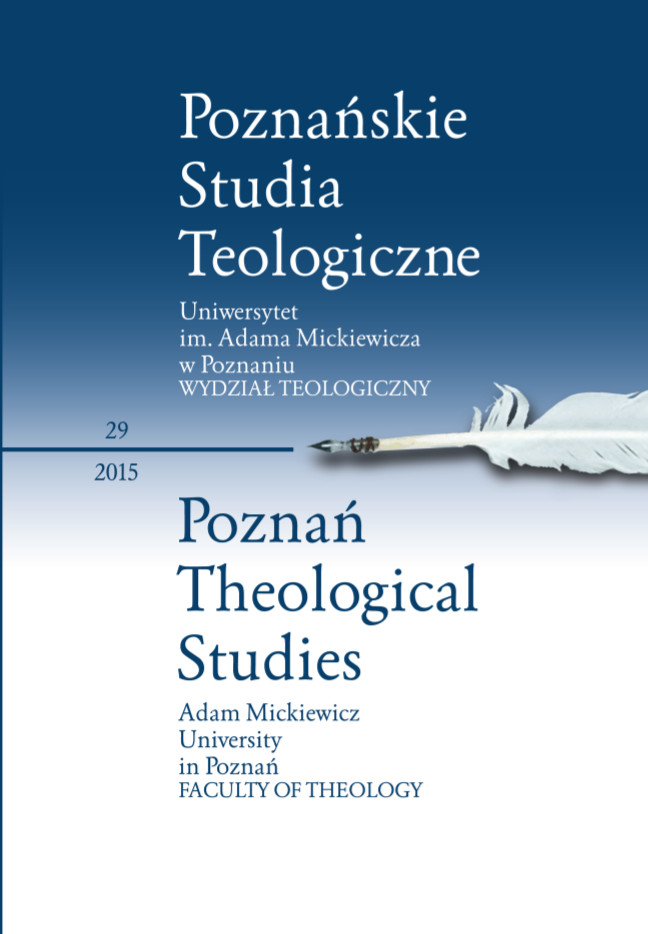Ocalenie jakby przez ogień (1 Kor 3,15). Czyściec z perspektywy Biblii i w refleksji teologicznej
"The person will be saved, but only as through fire" (1 Cor 3:15). Purgatory from the Perspective of the Bible and in Theological Reflection
Author(s): Piotr OstańskiSubject(s): Christian Theology and Religion, Theology and Religion, Biblical studies
Published by: Uniwersytet im. Adama Mickiewicza w Poznaniu
Keywords: afterlife; particular judgment; purgatory; final purification; prayer for the dead
Summary/Abstract: Apart from the two final states after death, heaven and hell, there is a third transitional state called “purgatory”. The Church believes in it, though this term does not occur in the Bible. The aim of this paper is to present scriptural sites relating to purification after death. There are only a few texts that concern purgatory and in addition they do not point directly to it: 2 Macc 12:38-45 (prayers and atonement can help the dead), Matt 12:31-32 (certain offenses can be forgiven in the age to come) and 1 Cor 3:10-15 (there is a cleansing fire after death – different from the punishment of the damned). The message of these texts is clear: the lot of a man may be changed even after death. One can also find in the Sacred Scripture some metaphors applying to purgatory: whipping (Lk 12:47-48), imprisonment for debts (Matt 5:25-26) and leaving the netherworld (Matt 12:4). Some scholars think, the Jesus’ parable of the rich man and Lazarus (Lk 16:19-31) also reveals the mystery of the final purification. Although the Church believed in purgatory from the very beginning, she formulated her doctrine of faith on purgatory especially at the Councils of Florence (1439) and Trent (1547). What the Church teaches is that there is a purification that occurs after death for all who die in God’s friendship but who have not been sufficiently purified for the glory of heaven. The purification can involve some kind of pain or discomfort (poena damni – punishment of temporary rejection and poena sensus – punishment of the senses). Martin Luther and the Protestants reject the doctrine of purgatory. They argue that if a man had to suffer in purgatory, the sacrifice of Jesus Christ would be incomplete and insufficient. The Catholic answer to the dilemma is that salvation assumes two steps: forgiveness of sins and transformation of life. The former occurs immediately, the latter needs time. God changes people and actually makes them righteous. Only when they are entirely sanctified and fully perfected, they are truly fit to enjoy the beatific vision of heaven. And what about people who die before they have been thoroughly transformed? The Catechism of the Catholic Church (1032) encourages the faithful on earth to assist those being purified and to offer prayers, above all the Eucharistic sacrifice, almsgiving, indulgences, and works of penance undertaken on behalf of the dead.
Journal: Poznańskie Studia Teologiczne
- Issue Year: 2015
- Issue No: 29
- Page Range: 139-163
- Page Count: 25
- Language: Polish

